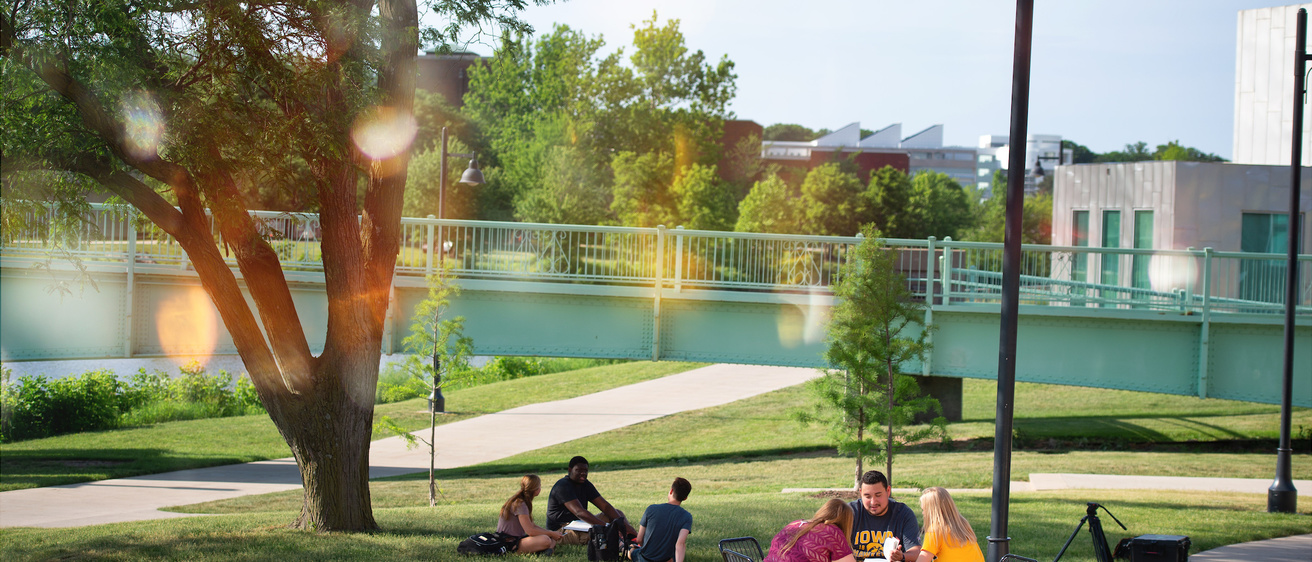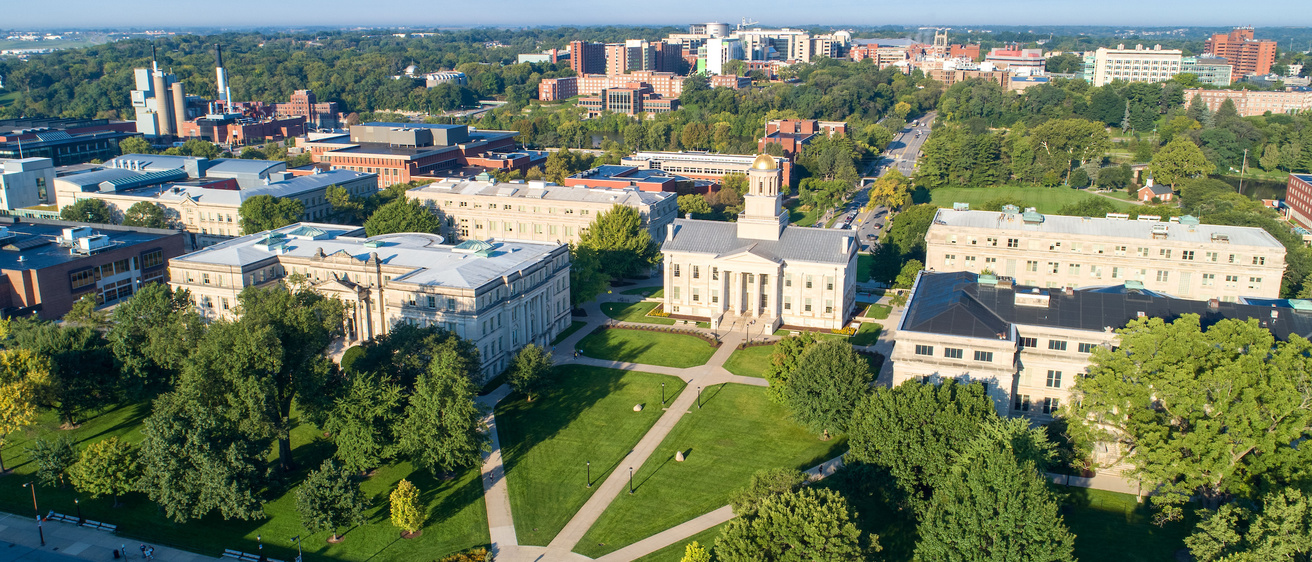Carver College of Medicine Events
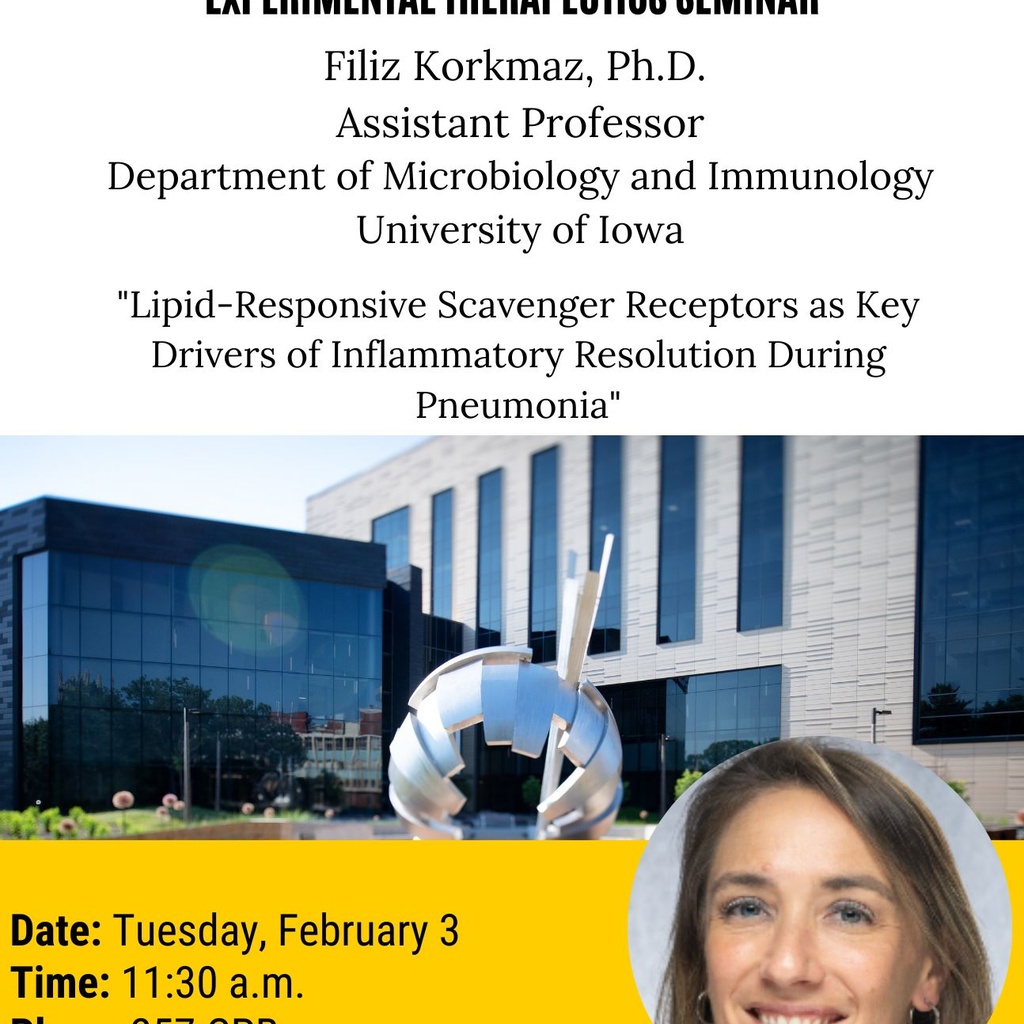
College of Pharmacy PSET Seminar Series: Filiz Korkmaz, PhD
The Department of Pharmaceutical Sciences and Experimental Therapeutics (PSET) in the College of Pharmacy will host a seminar presented by:
Filiz Korkmaz, PhD
Assistant Professor
Department of Microbiology and Immunology
University of Iowa
All are welcome to attend. No pre-registration required.

BMB Research Workshop
The Department of Biochemistry and Molecular Biology holds research workshops featuring internal speakers on Tuesdays, 12:30-1:20pm. For Spring 2026, these will occur in 2117 MERF. Presentation titles are not publicly available due to the use of unpublished research. Individuals interested in attending workshops or being added to the email list should contact the office at biochem@uiowa.edu.
Jan. 20: open
Jan. 27: open
Feb. 3: open
Feb. 10: open
Feb. 17: Tyler Woodward, PhD Candidate, 4th Year...
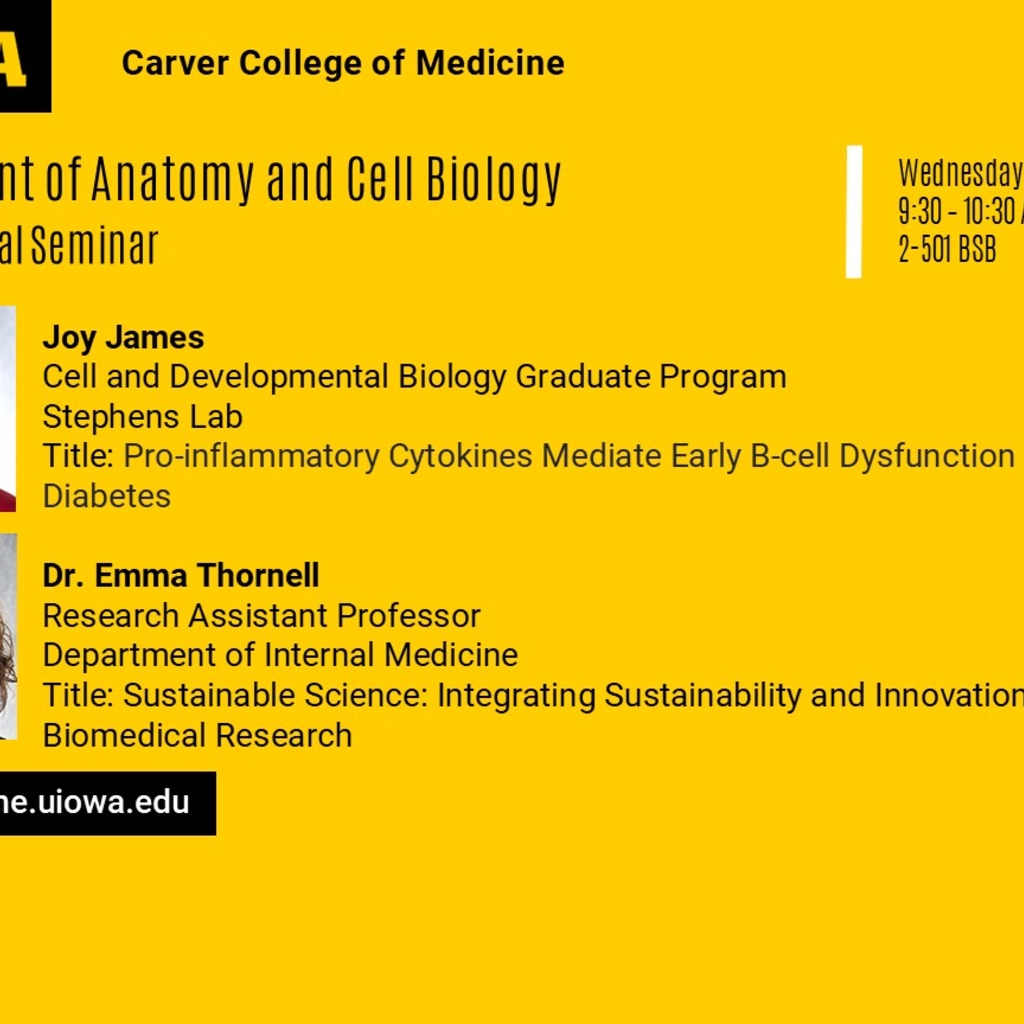
ACB Seminar Series - Joy James & Dr. Emma Thornell
Joy James, a Cell and Developmental Biology Student in the Stephens Lab, will present a seminar titled “Pro-inflammatory Cytokines Mediate Early Β-cell Dysfunction In Type 1 Diabetes."
Dr. Emma Thornell, a Research Assistant Professor in the Department of Internal Medicine, will present a seminar titled “Sustainable Science: Integrating Sustainability and Innovation in Biomedical Research."
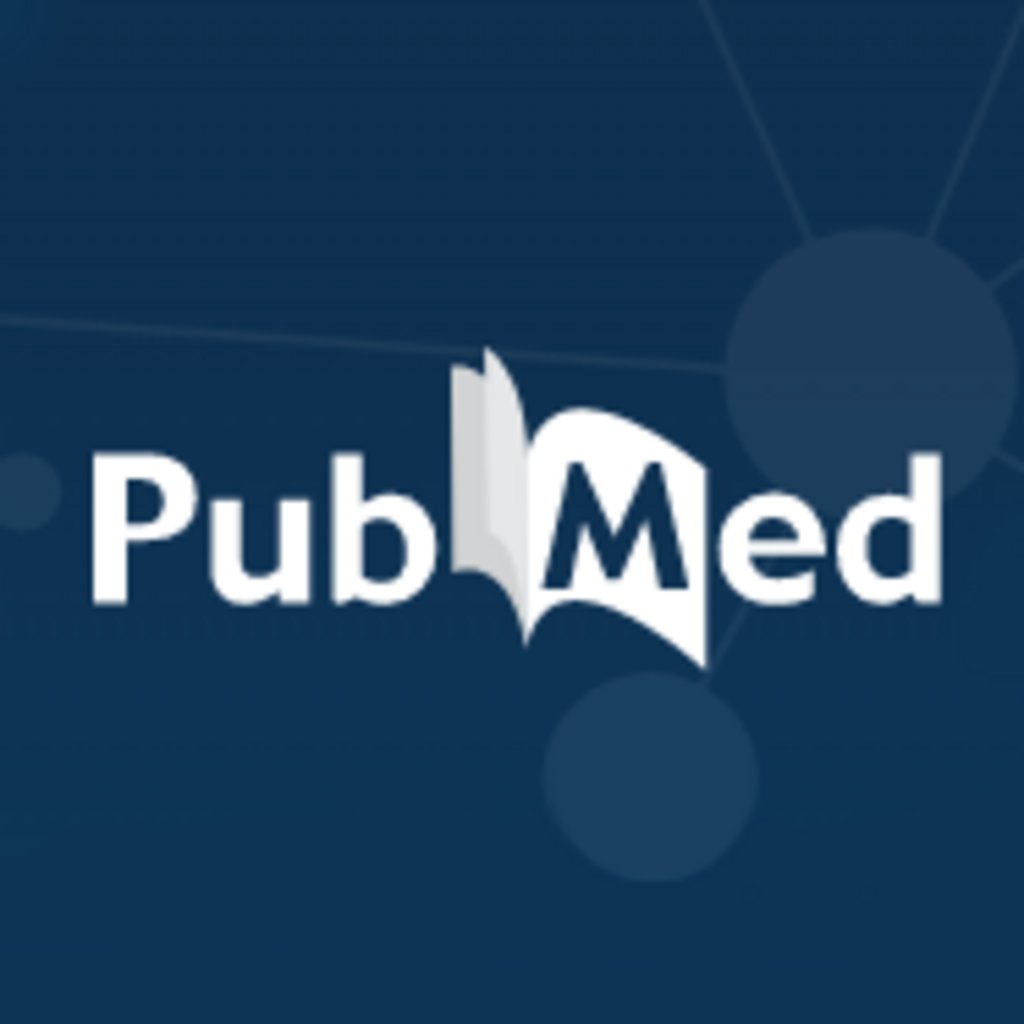
Hardin Open Workshops - PubMed (Zoom)
This hands-on session will help you improve your searching through best practices for basic and advanced searching and show you features for saving or exporting citations. The session will also help you understand medical subject headings (MeSH) and how they improve your search as well as the benefits of a MyNCBI account.
PLEASE NOTE:
Enrollment in HOW is open to all University of Iowa affiliates and residents of the state of Iowa. Advance registration is required for Zoom classes, though walk-ins...
Internal Medicine Grand Rounds 2/5/2026
"Acute Myeloid Leukemia: Are We Still Afraid? From urgency-driven decisions to precision-based care" by Prajwal Dhakal, MBBS


